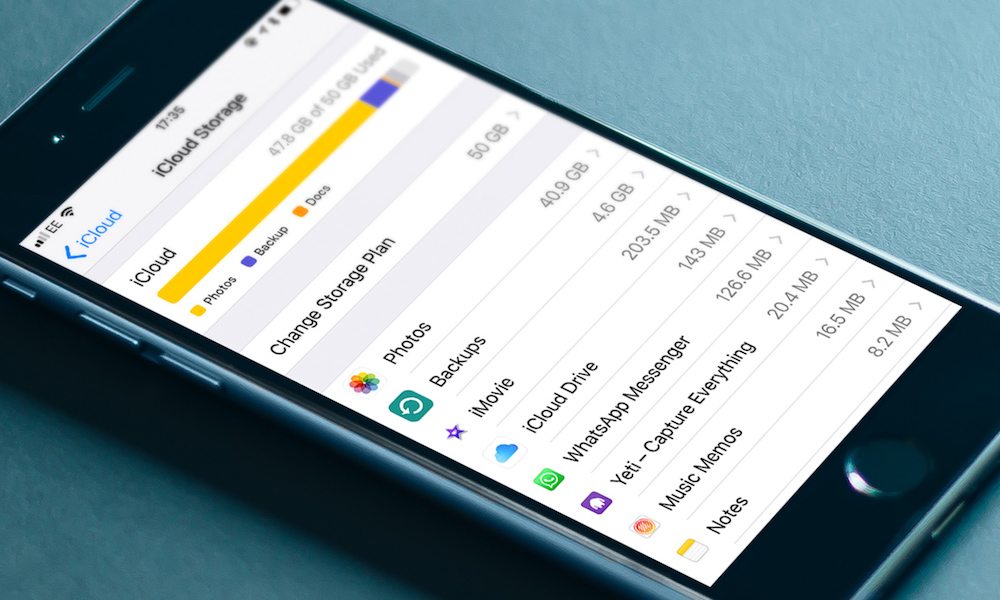Apple Hikes iCloud+ Storage Pricing in Several Countries
 Credit: nikkimeel / Shutterstock
Credit: nikkimeel / Shutterstock
Toggle Dark Mode
Apple is again raising the prices of some of its services, this time for its iCloud+ premium storage plans in the United Kingdom and several other countries.
While pricing in the US remains unchanged right now, iCloud users in the UK woke up this morning to news of a monthly price increase of 25% for the paid storage plans, according to 9to5Mac:
Before this week, in the UK, Apple charged £0.79/mo for 50 GB, £2.49/mo for 200 GB and £6.99/mo for 2 TB respectively. These prices have now risen to £0.99/mo, £2.99/mo and £8.99/mo, an average increase of around ~25%.
Various folks have noticed similar pricing changes in several other countries, including Brazil, Bulgaria, Colombia, Denmark, Egypt, Norway, Peru, Poland, Romania, Saudi Arabia, South Africa, Sweden, Tanzania, Turkey, and the United Arab Emirates. However, AppleInsider notes they’ve dropped a few cents in Iceland, where a 2TB plan now costs $11.99 USD, down from $12.39 previously. However, Apple includes Value Added Tax (VAT) in the price in Iceland, which may account for these changes.
The changes are likely simply the result of international currency fluctuations rather than a sign that Apple is planning a more widespread price increase for iCloud+ tiers. In addition to the US, iCloud+ pricing remains unchanged in several other major markets, including Australia, Canada, China, Japan, and the European Union.
Apple maintains a list of iCloud+ pricing in various countries, which has also been updated this week to include additional entries for the Bahamas, Barbados, Bahrain, Cambodia, Cameroon, Georgia, Ghana, Kenya, Moldova, Tajikistan, Uganda, and Uzbekistan. All these countries are billed in US dollars, although the exact iCloud+ storage prices vary slightly.
Apple’s storage plans and pricing have remained relatively consistent since the service was introduced in 2011. Apple still offers the same paltry 5GB of free storage as it did 12 years ago, expecting customers to pay if they want to increase that, no matter how many Apple devices they own.
For the first four years of iCloud’s life, Apple offered four other storage tiers: 20GB for $0.99/month, 200GB for $3.99/month, 500GB for $9.99/month, and 1TB for $19.99/month. The company shook things up in 2015 when it bumped the cheapest plan to 50GB, reduced the price of the 200GB plan to $2.99/month, and dropped the price of the 1TB storage tier to $9.99/month, eliminating the 500GB plan.
Then, a year later, Apple re-introduced that $19.99 top tier with a new 2TB plan, but that change was short-lived as less than a year later, Apple dropped the price of that 2TB plan down to $9.99, effectively doubling the storage for folks who were paying for the highest storage tier, which the price has remained ever since.
With the introduction of Apple One in late 2020, it became possible to get up to 4TB of iCloud storage by adding a standalone iCloud+ plan to an Apple One bundle.
While Apple hasn’t changed its iCloud storage pricing since 2017, it sweetened the pot in 2021 with iCloud+, packaging a new set of features such as iCloud Private Relay, custom email domains, Hide My Email, and HomeKit Secure Video at no extra charge. Those paying for any amount of iCloud storage — even the $1/month 50GB tier — automatically became “iCloud+” subscribers and gained access to these additional features.

Thankfully, there’s no reason to believe these iCloud+ pricing increases will expand beyond those few countries, and the changes appear to be exclusive to iCloud+ for now.
The price of Apple One bundles in those countries hasn’t changed, even though they all include at least some iCloud+ storage. This makes these an even better deal in those countries. Apple increased prices globally for Apple Music and Apple TV+ last fall, with an Apple Music individual plan going up by $1/month and Apple Music Family and Apple TV+ plans increasing by $2/month. Corresponding increases were made to the Apple One bundles.
This marked the first US price increase since the release of Apple Music in 2015 and Apple TV+ in 2019. Apple cited increased licensing costs for music as the reason for the Apple Music increase. At the same time, the company indicated that it had launched Apple TV+ at a “very low price” to get people on board when it had a relatively small library of content, but that’s since expanded to “an extensive selection of award-winning and broadly acclaimed series, feature films, documentaries, and kids and family entertainment from the world’s most creative storytellers.”







